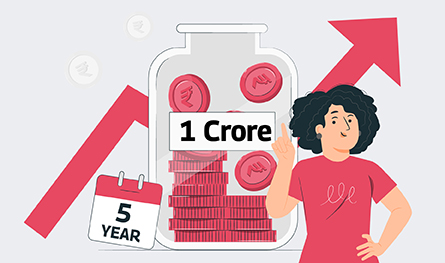Related Articles
 Jan 08, 2025
Jan 08, 2025
Is Varicose Vein surgery covered under the health insurance policy in India
 Health Insurance
Health Insurance


The likelihood of suffering from diseases becomes more with age. Diseases like hypertension, diabetes, etc. are common phenomena among most people these days. A health insurance policy is a cover that protect policyholders from the expenses incurred on the treatment of such diseases. However, you may note that most health insurance policies are available with a Pre-Existing Disease (PED) clause.
Under this clause, if an individual is suffering from any PED, he/she can avail the benefits of coverage for such diseases after completing the PED waiting period. Generally, a PED waiting period might range from 2 to 4 years depending on the particular health insurance plan and the insurer that you are buying the policy from.
In this post, we are discussing pre-existing disease health insurance and the reason why it is important to disclose the already existing diseases to your insurer while buying a health insurance plan.
Pre-Existing Diseases (PED) in health insurance means the ailments that an insured is already suffering from at the time of buying a health insurance policy. Though most healthcare policies offer coverage against PED, there is a waiting period applied by the insurer that the insured has to undergo before availing coverage on such diseases. Hence, individuals with health insurance policies can claim the expenses incurred on PED treatment after undergoing the waiting period. In most cases, the duration of the PED waiting period is between 2 – 4 years. So, a policyholder cannot avail coverage against PED conditions from Day 1 of the policy initiation date. Rather, they have to wait for a particular time period before they could avail the coverage on PED.
Even if a policyholder makes a claim against PED ailments before the completion of the waiting period, the insurer rejects the claim and no compensation is paid unless the waiting period for such diseases is over. However, there are certain health plans that allow coverage against pre-existing diseases from Day 1 of the policy commencement.
Also, health insurance providers charge extra premium costs on health plans for people who have pre-existing diseases. Since policyholders with PED are likely to raise claims against diseases that they are already suffering from. Hence, they are regarded as liability for the insurer and so the insurer charges them extra.
This is one reason why many people try to hide the PED that they are suffering from at the time of buying a plan from their insurer. However, this is a bad idea as the policyholder might get into trouble by not disclosing the ailments that they are suffering from while buying a policy.
To avoid paying extra premium on health insurance, most policy seekers tend to hide pre-existing diseases from insurers. However, not disclosing the PED while availing a policy is a fault that should be avoided by policyholders.
So, what is the importance to disclose pre-existing diseases list at the time of policy purchase?
Actually, health insurance providers levy premiums on particular health plans for different policyholders depending on various factors. Some of these factors include age of individuals, health condition, or any existing diseases that the individual is suffering from, etc. All this information is required to be filled in the proposal form by the policyholder at the time of buying a policy.
The information offered in the form is regarded as accurate and is accepted by the insurer. Based on the same, the premium of the policy and other things are also determined. Hence, if a policyholder is suffering from any pre-existing disease, he/she is expected to disclose the same sincerely so that the right premium and other things can be decided. Now, if a person offers false information, it is considered as violation of trust and he/she is likely to get penalized by the insurer.
Further, if the existence of PED is disclosed later during the tenure of the policy, the insurer may make the health plan null and void, and might reject the claim for breaching trust.
Also, some insurers might take legal action against the policyholder on charges of fraud for providing false information. To avoid such hassles, it is better to disclose PED that you may be suffering from at the time of policy purchase.
If you hide your pre-existing health conditions while buying a health insurance policy, it will be regarded as breach of trust. Hence, if the insurer comes to know about it later, the insurer might make the policy null & void and reject your claims as well.
There is a difference between a pre-existing disease and medical history. A PED may include any disease that an individual is having for 48 months before applying for a health insurance plan. On the other hand, medical history may include any ailment that a person might have been suffering from since childhood.
Pre-existing disease is a medical condition or illness that a policy seeker is already suffering from while buying a health insurance plan. For example, diabetes, hypertension, cancer etc.
Pre-existing diseases insurance refers to the medical conditions that a policy seeker is already suffering from while purchasing an insurance plan. These diseases may determine the premium of health insurance policies. Some of these conditions include asthma, thyroid, high blood pressure etc.
You must declare pre-existing medical conditions while buying a health policy because these conditions serve as a factor to determine your health insurance premium.

Paybima Team
Paybima is an Indian insurance aggregator on a mission to make insurance simple for people. Paybima is the Digital arm of the already established and trusted Mahindra Insurance Brokers Ltd., a reputed name in the insurance broking industry with 17 years of experience. Paybima promises you the easy-to-access online platform to buy insurance policies, and also extend their unrelented assistance with all your policy related queries and services.

.png)
If you are planning to buy two-wheeler insurance and are seeking answers to some frequently asked questions, look no further. Read on to know the two wheeler insurance FAQs related to bike insurance policy in this post.


Let’s be honest – life insurance planning isn’t exactly someone’s weekend hobby. It is the financial equivalent of flossing: we understand its importance, but we tend to put it off. But somewhere between balancing work and life, you might realise you need to have a solid plan in place – just in case.


If you think of life insurance, chances are you are picturing something people buy in their 30s or 40s. But what if you are 65 or older and just getting started? The good news is that you are never too late. Whether you are thinking of easing the financial burden on your family, covering final expenses, or simply leaving behind a legacy, there are life insurance options tailored just for you.
This article will be a guide to life insurance for senior citizens above 65 years, explaining why it is important, the type of insurance options, and how to get the right policy for you.


Health insurance plans are purchased with the hope of medical protection in times of need. However, sometimes it ends up being a source of surprise and disappointment. This mostly happens when people rush to buy health insurance plans, often overlooking essential aspects. Ignoring waiting period clauses, misunderstanding exclusions, and being unaware of sub-limits can lead to unwanted problems in the future.


If you are looking at investment policies offering INR 1 Crore in 5 years, we talk about some excellent plans in this post to help you choose the best one and reach your goal. However, it is important not to get swayed. Doing proper research and taking advice from financial or insurance advisors is important. Learn about such investment plan in this post.
